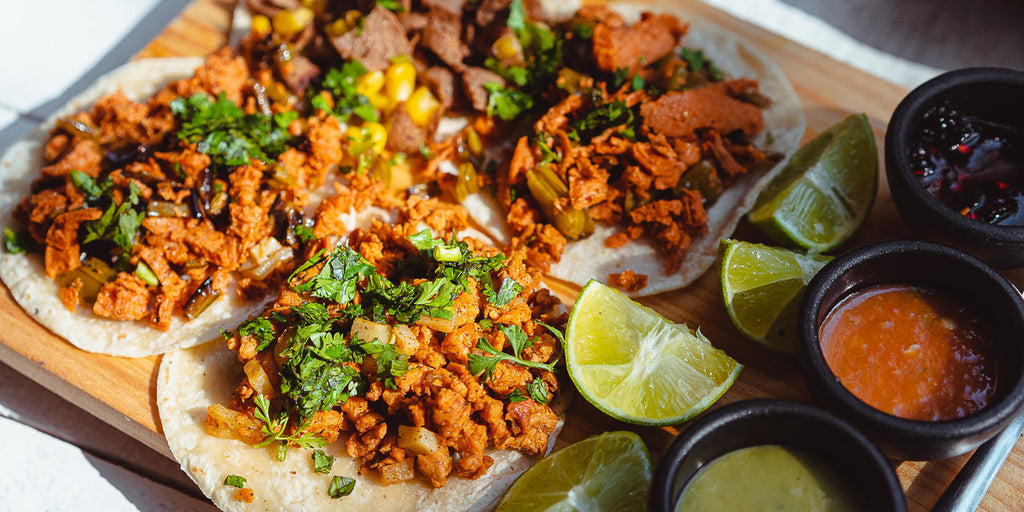Acid Reflux Supplements for Hispanic Americans

Traditional Latin American cuisine contains delicious ingredients that add flavor and spice to every meal. Tomatoes, salsas, chili peppers, citrus fruits, and alcohol can all promote good health when consumed in moderation. However, these high acidic foods, as well as fatty and fried foods, can cause unpleasant symptoms of indigestion.
Have you ever experienced a burning sensation in your chest after eating, while bending over, or in a resting position? This feeling is usually referred to as heartburn, and if you’re lucky it fades away pretty quickly. But if this discomfort frequently recurs, you may be suffering from gastroesophageal reflux disease (GERD), commonly known as acid reflux disease. According to a 2010 study, 50% of Hispanics experience heartburn every month and are the ethnicity most likely to be affected by GERD.
What is the difference between heartburn, acid reflux, and GERD?
Heartburn is a symptom of acid reflux, which causes stomach acid to regurgitate into the esophagus. Heartburn feels like a painful, burning sensation in your chest, which often climbs up into the neck and throat. This sometimes occurs after eating a meal high in fat, salt, or spices. Most people experience occasional heartburn and while uncomfortable, it is not considered a health concern.
GERD is a chronic digestive disorder that presents itself through the following symptoms more than twice per week:
-
Frequent heartburn
-
Chest pain
-
Difficulty swallowing
-
Nausea
-
Bitter taste in the mouth
GERD occurs when the lower esophageal sphincter refuses to close properly, allowing stomach acid to regularly travel up and cause inflammation. It can be triggered by frequently eating large meals, fatty or acidic foods, and laying down soon after eating. Risk factors for GERD include obesity, smoking, pregnancy, hormonal changes, and other lifestyle choices. GERD can lead to complications that affect the esophagus, mouth, teeth, and daily functions such as eating and sleeping. If you believe you are suffering from GERD, seek out a healthcare provider for proper diagnosis and treatment.
What is the best supplement for acid reflux?
Dietary supplements can promote gut health and support the digestive system.
Aloe Vera Complex™ contains aloe vera, slippery elm, and other natural ingredients that promote colon health and detoxification. Aloe vera also has laxative properties that help clean out the large intestine and promote healthy bowel movements.
Digestan™ is a combination of twelve herbs and enzymes formulated to promote overall digestive health. It includes herbs like peppermint, chamomile, and ginger that have been traditionally used to support digestion for hundreds of years.
Betaine HCL includes betaine hydrochloride, pepsin, and a proprietary blend of bitter herbs. Betaine hydrochloride is used to increase stomach acid, promoting digestion and the absorption of minerals. It is commonly used alongside pepsin, a digestive enzyme.
Other tips for curbing symptoms of GERD include:
-
Be mindful of portions and don’t overindulge in one sitting
-
Eat food slowly and chew thoroughly
-
Pass on fried food
-
Drink alcohol in moderation
-
Opt for mild to medium spice over the extra hot option
-
Maintain a healthy weight
-
Quit smoking
-
Avoid lying down right after meals
In addition to a healthy diet, regular exercise, and plenty of rest, digestive supplements can promote the proper gut function needed to help your body process spicy and acidic foods.
Get back to enjoying family dinner and finding pleasure in your food! Shop gut and digestion supplements.
Your Hispanic American health store
Health Hispanica is a Hispanic American health store specializing in supplements from Hispanic-American-owned brands such as Natura-Genics® and Yerba Farma®. We strive to provide quality and innovative supplements at fair prices and educate our clients and community on healthy living.



Leave a comment